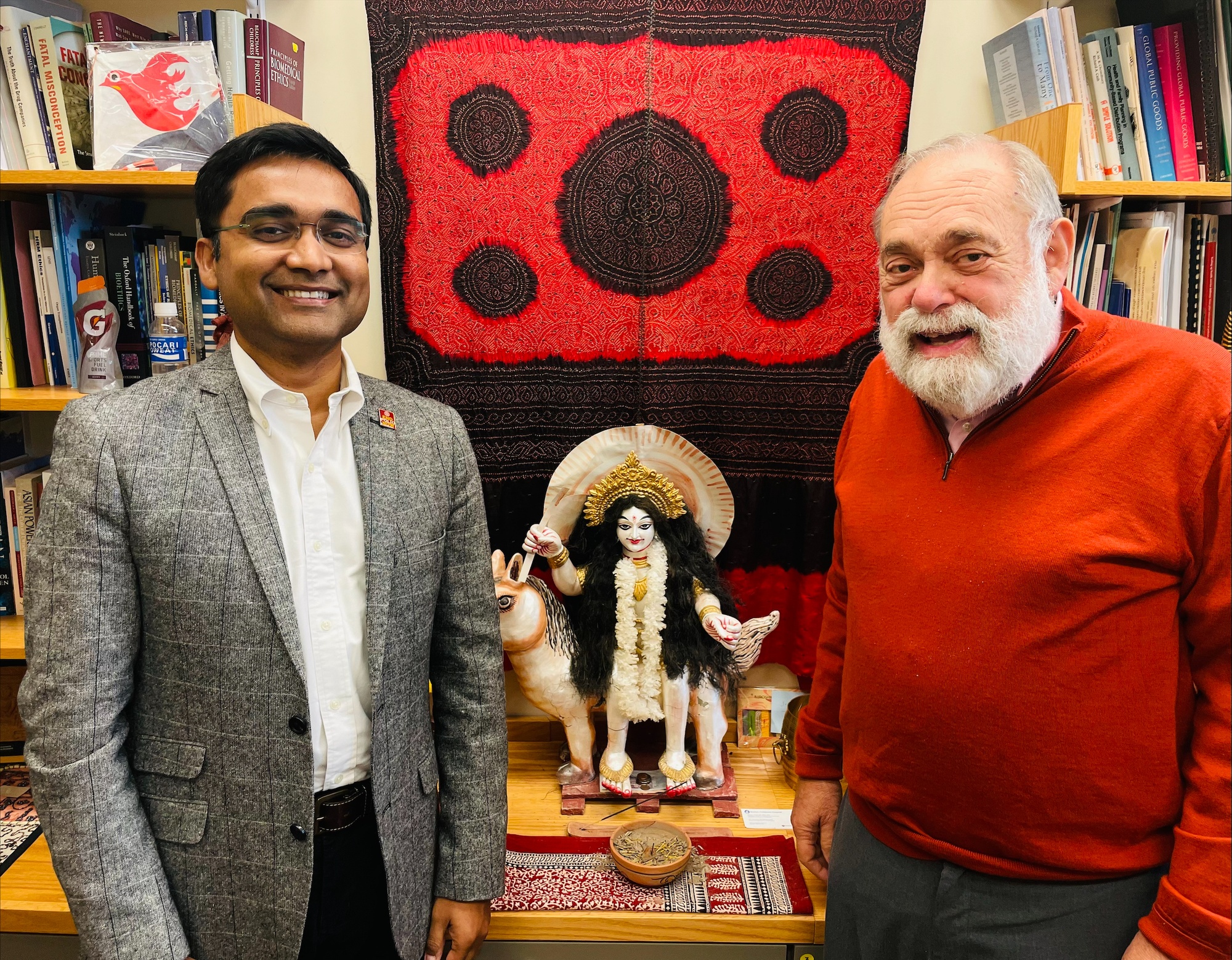Remembering Richard A. Cash: A Legacy of Compassion and Innovation in Global Health
When Qudsia Huda first met her adviser and lifelong mentor, Richard A. Cash, as a graduate student more than 15 years ago, she was taken aback by his warm greeting in her native language, Bengali: “Ami Richard Cash.” This simple yet profound gesture set the tone for a relationship that would profoundly impact Huda’s life and career. Cash’s deep connection to Bangladesh, which he affectionately referred to as his “second home,” was rooted in his groundbreaking work in global health, particularly in the development of oral rehydration therapy (ORT) for cholera—a treatment that has saved millions of lives.
Tragically, Richard A. Cash passed away on October 22 at his home in Cambridge after an eight-month battle with brain cancer. He was 83 years old and is survived by his wife, Stella Dupuis. His legacy, however, lives on through the countless lives he touched and the monumental advancements he made in public health.
A Journey from Milwaukee to Bangladesh
Born and raised in Milwaukee, Wisconsin, Cash’s journey into global health began with his academic pursuits. He completed his undergraduate degree at the University of Wisconsin in Madison and went on to receive his medical training at the New York University School of Medicine and Bellevue Hospital in New York City. In the late 1960s, Cash moved to Dhaka, East Pakistan (now Bangladesh), to work at the Cholera Research Laboratory (CRL), where he would make his most significant contributions to public health.
At the CRL, Cash collaborated with David Nalin to develop and implement ORT, a revolutionary treatment that replaced traditional intravenous dehydration methods with a simple solution of sugar and salt. This approach was designed to maximize survival rates for patients suffering from cholera and other diarrheal diseases, particularly in medically underserved regions. Cash’s work in the 1970s with BRAC, a Bangladesh-based development organization, further extended the reach of ORT by equipping local residents with the knowledge and resources to combat cholera effectively.
Nalin emphasized Cash’s unwavering dedication to his work overseas, stating, “Number one was his empathy with the myriad poor of the developing world, who, at that time, were going totally unserved.” This empathy was not just a professional trait; it was a fundamental aspect of Cash’s character.
A Lifelong Commitment to Education and Mentorship
Despite eventually returning to the United States and taking a position at Harvard’s School of Public Health (HSPH), Cash maintained a strong connection to Bangladesh and a fascination with South Asian culture. His office was adorned with a statue of Sheetala, the Hindu goddess of smallpox eradication, symbolizing his commitment to public health.
Cash’s involvement extended beyond HSPH; he was an active participant in Harvard’s Lakshmi Mittal and Family South Asia Institute, contributing to various research projects and academic events. His contributions to global health were recognized with numerous accolades, including the Prince Mahidol Award in Public Health in 2006 and the James and Sarah Fries Prize for Improving Health in 2011. The World Health Organization credits the global dissemination of ORT with saving over 60 million children, and The Lancet hailed it as “potentially the most important medical advance this century” in 1978.
A Teacher Who Inspired Generations
Richard Cash was not only a pioneer in public health; he was also a beloved educator. Ananda S. Bandyopadhyay, a former student at HSPH, fondly recalled their debates on disease eradication, often held across from the Sheetala statue. “He was such a humble, soft-hearted person, so caring,” Bandyopadhyay said, reflecting on Cash’s genuine interactions with students.
Students remembered Cash as a brilliant academic who prioritized their intellectual and personal growth. Bazghina W.S. Dessalegn, an associate professor at the University of Washington and former student, noted, “Richard’s passion for global health and making a difference in the lives of those who needed it most inspired me and helped shape my career.” His teaching style was characterized by a focus on practical solutions, encouraging students to think critically and deeply about the challenges they faced.
Timothy Mah, another former student, described Cash as a “giant in the world of public health and a caring friend.” He recalled how Cash would challenge students with tough questions, prompting them to reevaluate their thinking while maintaining a supportive demeanor.
A Legacy of Humanity and Support
Nearly two decades later, Qudsia Huda, now the Head of Disaster Risk Management and Resilience Unit at the World Health Organization, still cherishes the support she received from Cash. During her time as a graduate student, he encouraged her to persevere through the challenges of balancing her studies with raising two young children. “He was one of those people who would actually not only encourage you but give you moral support to work for humanity,” Huda said.
Cash’s ability to remember personal details about his students made him feel very human. Huda recounted a meeting in Geneva where Cash noticed her unique style of wearing a saree with winter boots, leading to a moment of shared laughter and connection.
Conclusion
Richard A. Cash’s contributions to global health and education are immeasurable. His empathy, dedication, and innovative spirit have left an indelible mark on the field of public health and the lives of countless individuals. As we remember him, we celebrate not only his groundbreaking work in oral rehydration therapy but also the profound impact he had as a mentor, teacher, and friend. His legacy will continue to inspire future generations of public health professionals committed to making a difference in the world.
